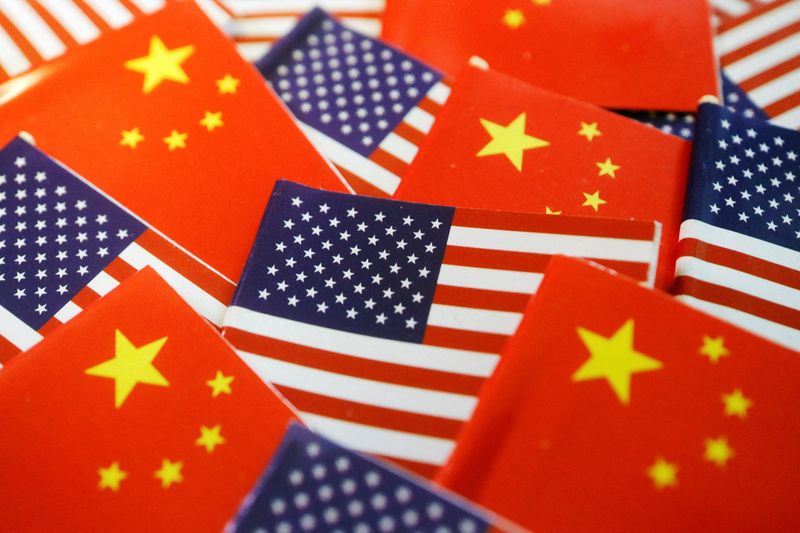By David Shepardson
WASHINGTON (Reuters) -The U.S. Commerce Department is expected to submit a proposal on Monday to ban Chinese software and hardware in connected and autonomous vehicles on U.S. roads over national security concerns, two sources told Reuters.
The Biden administration has raised serious concerns about Chinese companies’ collection of data on U.S. drivers and infrastructure, as well as the possible foreign tampering of vehicles connected to the Internet and navigation systems.
The proposed regulation would ban the import and sale of vehicles from China with key communications or automated driving system software or hardware, said the two sources, who declined to be identified because the decision had not been made public.
The move marks a significant escalation of ongoing restrictions in the United States on Chinese vehicles, software and components. Last week, the Biden administration implemented sharp tariff increases on Chinese imports, including a 100% tariff on electric vehicles and new hikes on EV batteries and key minerals.
Commerce Secretary Gina Raimondo said in May that the risks from Chinese software or hardware in connected U.S. vehicles are significant.
“You can theoretically imagine the most catastrophic outcome if you had a few million cars on the road and the software was disabled,” she said.
President Joe Biden in February ordered an investigation into whether Chinese vehicle imports pose national security risks related to connected car technology — and whether that software and hardware should be banned in all vehicles on U.S. roads.
“China’s policies could flood our market with its vehicles, posing risks to our national security,” Biden said earlier. “I won’t let that happen on my watch.”
The Commerce Department plans to give the public 30 days to comment before finalizing the rules, the sources said. Nearly all newer vehicles on U.S. roads are considered “connected.” Such vehicles have built-in networking hardware that enables internet access, allowing them to share data with devices both inside and outside the vehicle.
The department also plans to propose that the software ban take effect in the 2027 model year and the hardware ban would take effect in January 2029 or the 2030 model year. The bans in question would apply to vehicles with certain Bluetooth, satellite and wireless functions, as well as highly autonomous vehicles that could operate without a driver behind the wheel.
A bipartisan group of U.S. lawmakers raised alarms in November about Chinese auto and technology companies collecting and processing sensitive data while testing autonomous vehicles in the United States.
The bans would extend to other foreign US adversaries, including Russia, the sources said.
A trade group representing major automakers including General Motors (NYSE:), Toyota Motor (NYSE:), Volkswagen (ETR:), Hyundai (OTC:) and others had warned that changing hardware and software would take time.
The automakers noted that their systems “undergo extensive pre-production engineering, testing and validation processes and generally cannot be easily swapped with systems or components from another supplier.”
The Commerce Department declined to comment Saturday. Reuters first reported details of a plan in early August that would see Chinese automakers ban testing autonomous vehicles on U.S. roads. Relatively few Chinese-made light vehicles are imported into the United States.

The White House signed the final proposal on Thursday, according to a government website. The rule is intended to ensure the security of the supply chain for US-connected vehicles. It will apply to all vehicles on U.S. roads, but not agricultural or mining vehicles, the sources said.
Biden noted that most cars are connected like smartphones on wheels, linked to phones, navigation systems, critical infrastructure and to the companies that made them.


